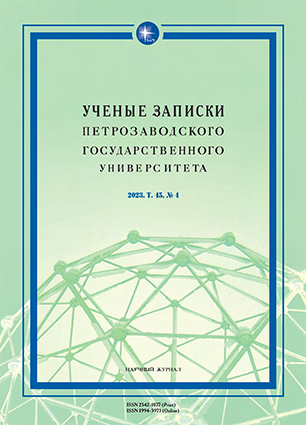Особенности темпоральной семантики предикативов
структурных схем «кто / что увеличивает кого / что»
и «кто / что уменьшает кого / что»
SPECIFICITY OF TEMPORAL SEMANTICS OF PREDICATIVES
OF STRUCTURAL PATTERNS “WHO / WHAT INCREASES WHO / WHAT”
AND “WHO / WHAT DECREASES WHO / WHAT”
Author(s): Ali Radi Mashdzhel' Al-HasnawiSubject(s): Semantics
Published by: Петрозаводский государственный университет
Keywords: temporal semantics; predicative; perfect; aoristic meaning; localization; non-localization; usage;
Summary/Abstract: The article presents a description and revelation of the temporal meanings of predicatives with two opposite meanings located on the same tier in the syntactical field “change”: the structural patterns “who / what increases who / what” and “who / what decreases who / what”. The importance of the study follows from the functional significance of temporal semantics in the formation of the communicative unit. As the structure-forming component, a marker of a predicative under consideration, there are verbs of increasing, such as to enlarge, to increase, to double, to decuple, to aggravate, etc., which form the first scheme, and verbs of decreasing, such as to muffle, to make slower, to undermine one’s health, to undermine smb’s authority, to decrease, etc., which form the second one. The collection of linguistic material was carried out on the basis of the continuous sampling method from the texts of Russian literature of the XIX–XXI centuries. Much attention is paid to identifying the main and specific meanings of verb forms of the present, past and future tenses. The study revealed the productivity of the forms of the past tense with the prevailing actual semantics with its aoristic and perfect meaning and the low productivity of present tense forms with prevailing non-actual semantics of the usual, iterative, generalized character and its transposition, as well as the frequency of future tense forms lower than that of other forms.
Journal: Ученые записки Петрозаводского государственного университета
- Issue Year: 45/2023
- Issue No: 4
- Page Range: 13-20
- Page Count: 8
- Language: Russian

